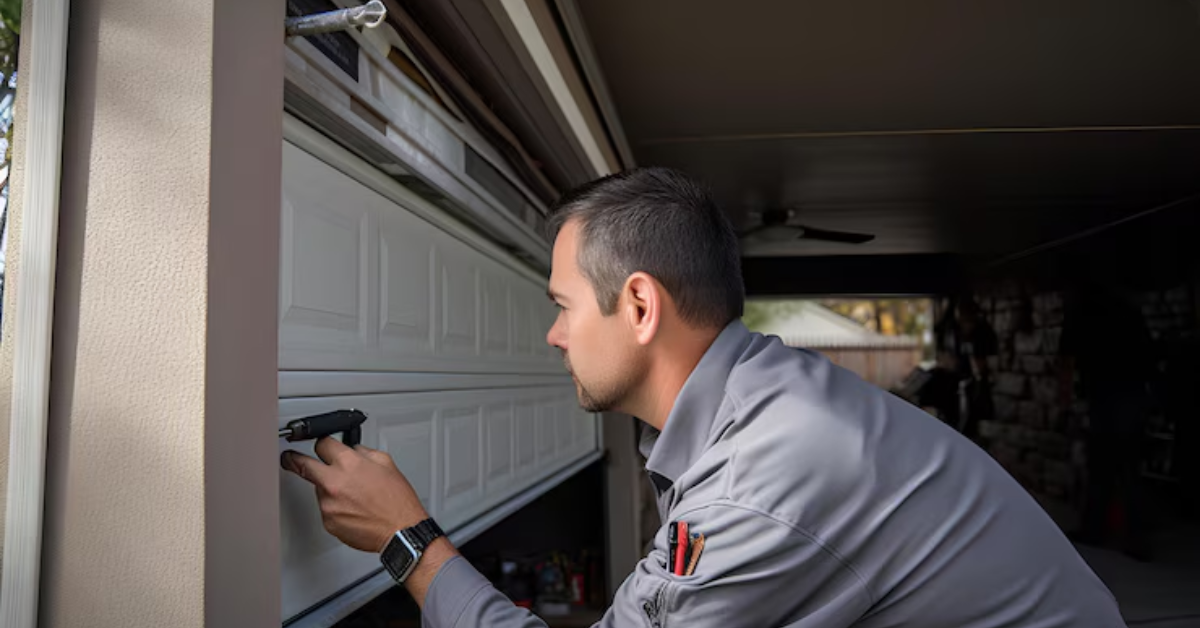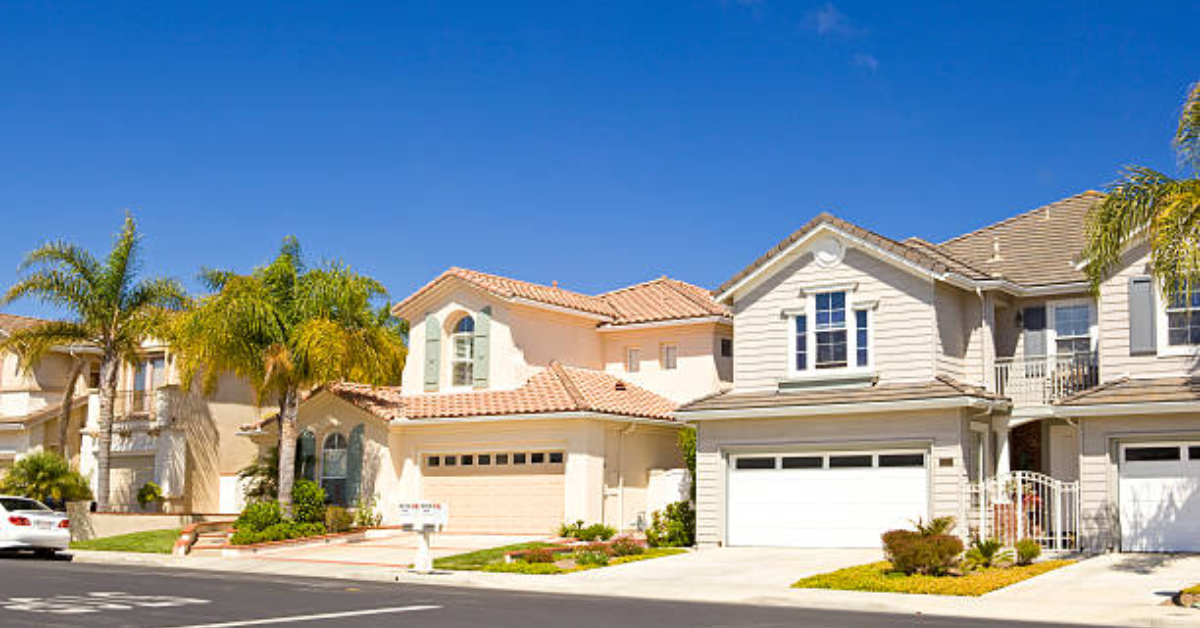How to Lubricate Your Noisy Garage Door
How to Lubricate Your Noisy Garage Door

Unfortunately, despite the fact that your garage can serve a variety of purposes—including serving as a parking space for your car, a place to store goods you don't want to throw away just yet, or even a small repair shop—the garage door may also be a source of obscene noise. This sad situation could be brought on by a variety of factors, including poor maintenance, wear and tear, or simply a noisy garage door opener.
Fortunately, even though mending your noisy garage door could call for a little bit of technical expertise, fixing it won't always take much time. Most importantly, you'll be able to do it by yourself. You'll discover the most frequent reasons for a noisy garage door shortly, along with solutions.
Why Is My Garage Door Squeaking?
Most likely, you don't give your garage door much thought until it gives you a problem. Even if it still has the potential to close and open, every movement might be accompanied by a loud noise that would annoy your family or possibly even your neighbors. Although it wouldn't be a bad idea to speak with an experienced specialist, there's a strong chance that you'll be able to solve the issue on your own.
Your garage door may be malfunctioning as a result of a twisted track. Even though you might be able to close and open the door, if you hear rubbing noises as you do so, the track may be twisted.
One of the garage door parts could be loose, which could be causing a lot of noise during the opening and closing of your garage. Identifying which component is responsible for the clamor – whether it’s garage door rollers, nuts, or chain, to name just a few, could be pretty time-consuming. However, your task will be a bit easier if you know what type of sound corresponds with which of the garage door’s moving parts.
If there is a rattling sound when you open or close the door, it is most likely due to the loose nuts or bolts. That’s one of the most common causes of noisy garage doors, with a relatively simple solution – use a ratchet to make sure that no nut or bolt is loose. However, don’t use too much force, or you might damage the door and achieve the opposite effect from the intended one.
On the other hand, a squeaking sound could indicate that hinges or rollers are the responsible parties. Because of their wear and tear, the entire door could additionally shake while it opens and closes. If the bearings of the garage door rollers are dirty, they will become worn much more quickly, which is why it is a good idea to check their condition regularly.
If they are worn-out, you should consider replacing the garage door rollers – nylon ones are worthy of recommendation, as they are significantly quieter, but at the same time, they don’t need to be oiled regularly. This way, you would not only successfully deal with the problem, but you could also forget about the garage door rollers’ maintenance. Are there any downsides to this solution? Unfortunately, they are also more costly.
If you can hear a characteristic “slapping” sound while you open or close the garage door, it could indicate that the chain is the culprit. If that’s the case, fixing this issue could be as simple as tightening it.
How to Lubricate Garage Door
The awful noise, however, can still be present even after you check to make sure that none of the garage door components are loose. You still have a lot of options for fixing your garage door, so don't worry. Although loose parts are frequently to fault for the noise, lack of lubrication is also frequently to blame.
Numerous components, including hinges, springs, tracks, and chains, may vibrate when the garage door is opened or closed because of the friction between them. The good news is that you may solve this problem quickly and simply by lubricating the garage door's moving parts.
Start by closing the garage door, and disconnecting it from the power, so that no one will open it by accident while you’re working on it, which could lead to an injury. Only once the power is cut can you proceed to the next part, which is cleaning the tracks.
Use a damp cloth to clean the tracks so that they’ll be completely dirt-free. That’s essential, as rollers could shake due to the build-up of dirt, which could generate noise. If you haven’t cleaned the tracks in quite a while, you might discover that getting rid of all the dirt could prove troublesome. In this situation, we recommend using a brake cleaner, which will help you make sure that the tracks are completely clean with no effort, and on top of that, it leaves no residue, which is crucial for the proper functioning of the garage door rollers.
Once you’ve successfully dealt with the previous step, you can now start lubricating garage door parts. We recommend lithium grease as a garage door lubricant instead of WD-40 or oil. The latter would lubricate the garage door just fine, but it would attract dirt later on, which would prove counterproductive.
Now, after lifting up the garage door a little bit, spray the garage door lubricant on hinges. There’s no need to use too much of it – a single spray should be enough.
After you’ve dealt with this part, it’s time to lubricate the garage door rollers, which you’ll find next to the hinges. You should pay extra attention to the ball bearings – make sure that they are well-lubricated. This step only applies if you have steel garage door rollers, as nylon ones don’t need to be lubricated.
Now, it’s time for the garage door springs. Springs can be usually found in the upper part of the garage door, which is why accessing them might be a bit problematic, and you might need to use a step ladder in the process.
Once you’ve sprayed the springs with the garage door lube, open and close the door a couple of times. However, you might find out that even after you lubricate the garage door springs, there’s still a noise coming from them, and you might need to replace them. However, the process could be dangerous, which is why we don’t recommend doing it on your own; instead, contacting a skilled technician is a better idea.
Lastly, you should lubricate the upper part of the rail. Oftentimes there’s not enough lubrication, and as a result, the chain causes a lot of noise every time you open or close the door. You might have trouble accessing the rail, which is why a step ladder will come in handy once again.
Ideally, you wouldn’t lubricate the garage door parts only when they start malfunctioning, but rather – regularly. Garage door maintenance doesn’t require a lot of time – all that you need to do is ensure that there’s no build-up of dust and dirt and lubricate all the parts that we’ve mentioned, such as hinges, springs, or rails.
What if the Lubrication of Garage Door Parts Doesn’t Help?
Additionally, you might need to replace a garage door component if you find that lubricating it has no effect and the noise problem remains. However, it's advisable to leave this task to qualified professionals if you aren't 100% positive that you know how to do that. It's not only a matter of further harming the garage door's components; if you're not careful, some of them could come off and injure or even kill you. We advise calling a specialist whether it is the hinges or the springs that need to be replaced.
Could the Issues With Garage Doors Be Caused by Something Else?
It also could be the case that you lubricate all the garage door parts, tighten all the bolts, and there are no apparent problems, yet still, there’s a noise. In this case, the garage door opener might be to blame. Chain drive garage door openers are typically the loudest, which is why if you want to get rid of the noise, you should consider installing a belt drive garage door opener instead.
Conclusion
If you value peace and quiet in your home, you might be surprised that your garage door could be a source of disturbance in your day-to-day life. No one enjoys the noise caused by the opening and closing of the garage doors, though there is not a single solution to this problem.
Your garage door is made of many moving parts, which means that the issue of a noisy garage door could be fixed by tightening all the bolts and nuts, though don’t use excessive force, or you could damage the mechanism.
However, if it doesn’t bring any results and loose elements are not the cause of your problems, you should lubricate the garage door’s moving parts. Similarly, as in the previous step, you should inspect from where exactly comes the noise, and then just lubricate a garage door element that causes the clamor. It could be the springs, the hinges, or other moving parts.
Still, lubrication of garage doors might not be enough, and you might need to replace some elements. After reading this article, we hope that you now know what could be causing the disturbance and how to lubricate your noisy garage door.




